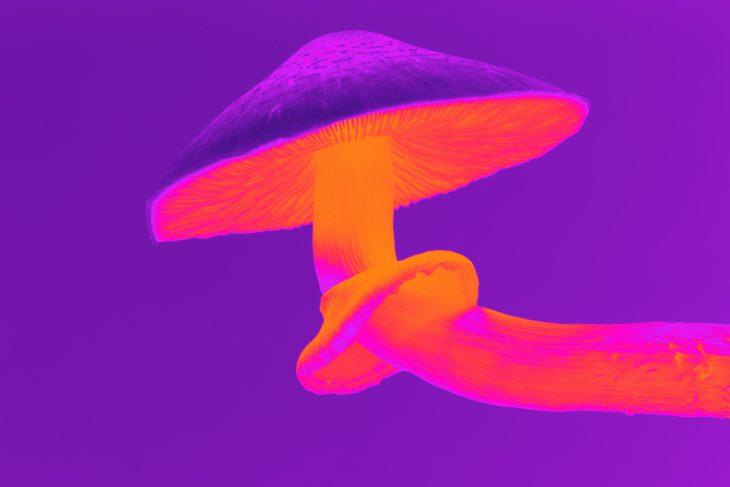Does the word ‘psilocybin’ ring a bell? If not, what about ‘magic mushrooms’, or ‘shrooms’? Psilocybin is a naturally occurring substance in certain kinds of mushrooms. The mushrooms that contain psilocybin are often referred to as ‘shrooms’ or ‘magic mushrooms’. When ingested, they can cause psychedelic/hallucinogenic effects. Recently, researchers have become curious about these psilocybin-containing mushrooms, but not for their psychedelic wonders. Rather, researchers are going beyond their clichéd side effects and are digging deeper into their neurological effects.
“Cognition” is a term for the day-to-day mental processes underlying our thoughts, learning, and problem solving. There are many kinds of cognitive processes, and each is important in its own way. These researchers were interested in the creative side of cognition. Creativity is a dynamic cognitive process that operates in different ways and is unique to each person.
The relationship between creativity and psilocybin has entered the spotlight recently, spurring deeper investigations into its function. In order to study the resulting psychiatric effects properly, researchers conducted an experiment on a group of 60 individuals – 30 received a dose of psilocybin, and the remaining 30 received a placebo. They were also examined using brain imaging technology called fMRI.
The researchers observed and documented two different kinds of creative thinking: convergent and divergent. Convergent thinking is using logic to come up with an answer to a problem, while divergent thinking uses imagination. Once the psilocybin was administered, the participants were shown a series of color images and asked to find associations between them. They were scored based on getting the “correct” association, how many associations they could think of, and how many associations were unique compared to the other study participants’ suggestions. This image game tested both divergent and convergent thinking. The individuals who consumed the psilocybin produced more wrong answers and had fewer creative answers, compared to the placebo group.
The psilocybin participants were asked whether they felt as if their creativity was enhanced or not 6 hours after the test. Contrary to the results, they all believed that their creativity had improved. Notably, a pattern of feeling insightful and conscious was also recorded from the mushroom group.
One week after the original test was conducted, the researchers performed the same photo-based experiment again, but without giving psilocybin. The individuals who took psilocybin the week before did better on their convergent, or logical, test. However, the placebo group still outscored them. When tested for their divergent creativity, the psilocybin group produced significantly more novel, original answers than the group who received the placebo.
All in all, psilocybin did not present enough evidence to prove that it significantly increases one’s creativity. The main takeaway is that the psilocybin group felt increased insight and intuition. Research on psilocybin is still in its early stages, so more tests relating to its neurological effects are needed. The authors emphasize the importance of further tests due to claims that it can be used to treat depression and anxiety. They also suggest future research into how therapists can help patients use these substances to benefit their recovery.
Do you like podcasts? We have one! It’s called Science Decoded. We did an episode about this study, and interviewed the lead author. Check it out here! If you don’t have Spotify, that’s totally fine. There are lots of ways to listen.


